By: David Rea – Principal Engineer & Partner
Client: Manufacturer of electric lift trucks for warehousing and distribution applications
An established company within the electric vehicle material handling space approached Re:Build AppliedLogix with a need to expand the capabilities of their existing commercial-of-the-shelf (COTS) 4-channel CAN Bus based data logger.
They needed a solution that would support the capture and recording of a wide range of operational characteristics of their vehicles. Their existing data logger solution lacked sufficient support for their unique mix and quantity of signal conditioning and capture requirements.
The new parameters of interest included: voltage, current flow, shock, vibration, and temperature and vehicle system communications. In total, their requirements dictated a system supporting the rapid data acquisition of 20 analog channels, 2 SPI channels, 4 CAN bus channels and two RS232 channels within a data logging interval of just 10 msec.
The desired solution also needed to support electrical and mechanical compatibility across the company’s diverse fleet of electric vehicles. The electro-mechanical integration challenges included:
The Re:Build AppliedLogix team developed a custom embedded system that met the customer’s requirements for their high-speed analog and digital data acquisition module. A custom solution provided a highly integrated and unified solution for capturing the myriad of vehicle performance data that had been requested.
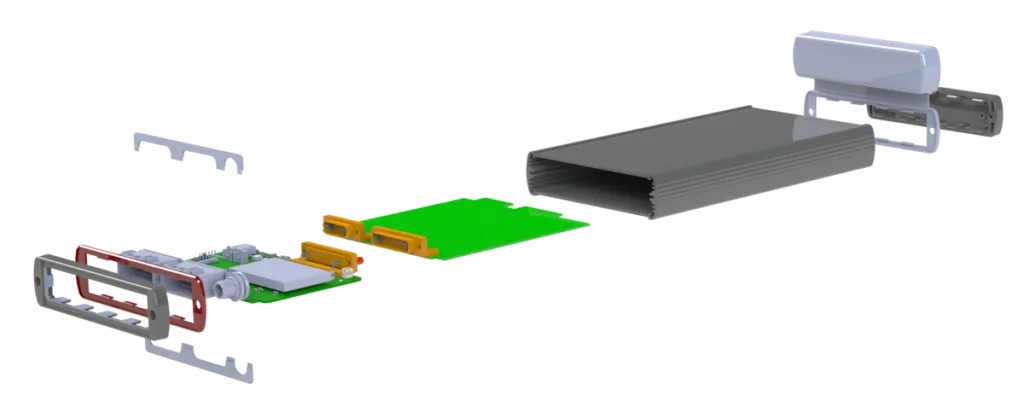
Custom module with COTS data logger
The custom module included a high speed, DSP-based MCU (microcontroller) that interfaced with a COTS 4 channel CAN BUS Logging system.
The DSP/MCU contained two independent ADC modules, two independent CAN modules, four UART modules, two SPI modules and four channels of DMA. The DSP/MCU was capable of capturing all of the acquisition data via a single high-speed CAN BUS interface to the data logger.
The embedded system includes a custom analog and digital data acquisition module integrated with an off-the-shelf CAN Bus data logger. The design expanded the data logger capabilities to meet the variety of digital and analog sensors required by the end customer.
The main electrical and mechanical functionality includes:
The development effort began with a rapid prototype phase using manufacturers’ development kits for proof of concept (POC). The dev-kits enabled the software development to proceed concurrently with the custom electronics module hardware development comprising mixed-signal circuit simulations, schematic capture, and PCB layout.
An innovative packaging approach leveraged and extended the pre-existing end cap design. An extruded aluminum housing was modified to include the additional length needed for the custom DSP/MCU data acquisition board. A custom 3D printed elastomeric dust cover provided easy access to the data logger functions while the logger was installed in the vehicle.
The high density and heavy gauge wiring drove the need to develop a creative solution for the second endcap. A unique, split faceplate design approach was developed. The faceplate sections were bonded together during final assembly – thereby simulating a bulk head mount. Once the face plate halves were attached to the circuit board they could then be assembled into their respective endcaps.
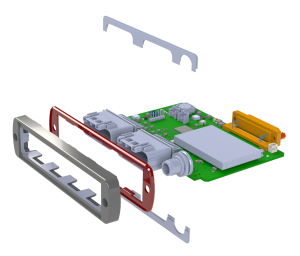

Custom Data Acquisition Module
Custom Module with COTS Data Logger
A simple Velcro attachment was applied to securely mount the enclosure to the vehicle, while allowing it to be quickly transferred to another vehicle as needed.
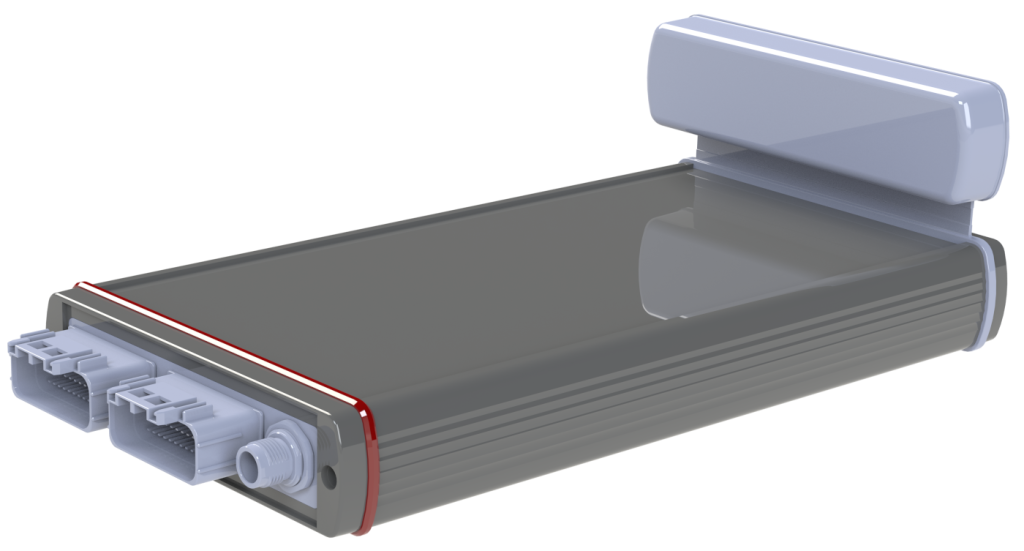
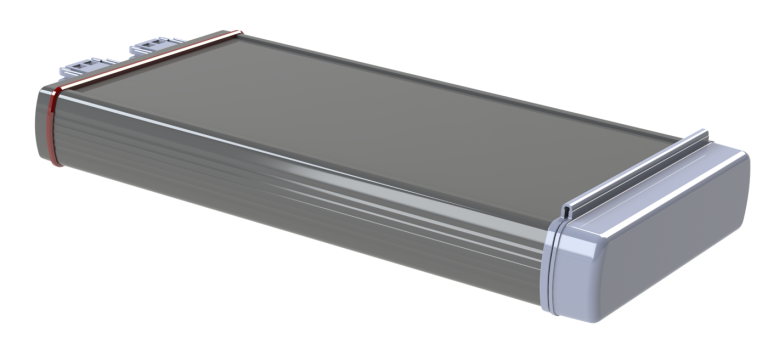
Assembled Custom Logger
A cast aluminum enclosure with custom standoffs was developed to house a remote accelerometer sensor that was interfaced to the data logger using an M12 bulk head connector. Rare earth magnets were deployed to allow this module to be quickly installed and provide secure mating with the vehicle.
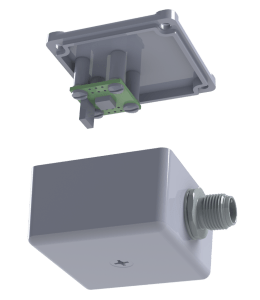
Remote Accelerometer Housing
Quick-turn prototyping was leveraged to accelerate the form, fit, and function verification testing of the completed subsystem. The final solution was delivered in lock-step with the customer’s product testing schedule.
Let’s talk about your unique challenges and how Re:Build AppliedLogix can help you.